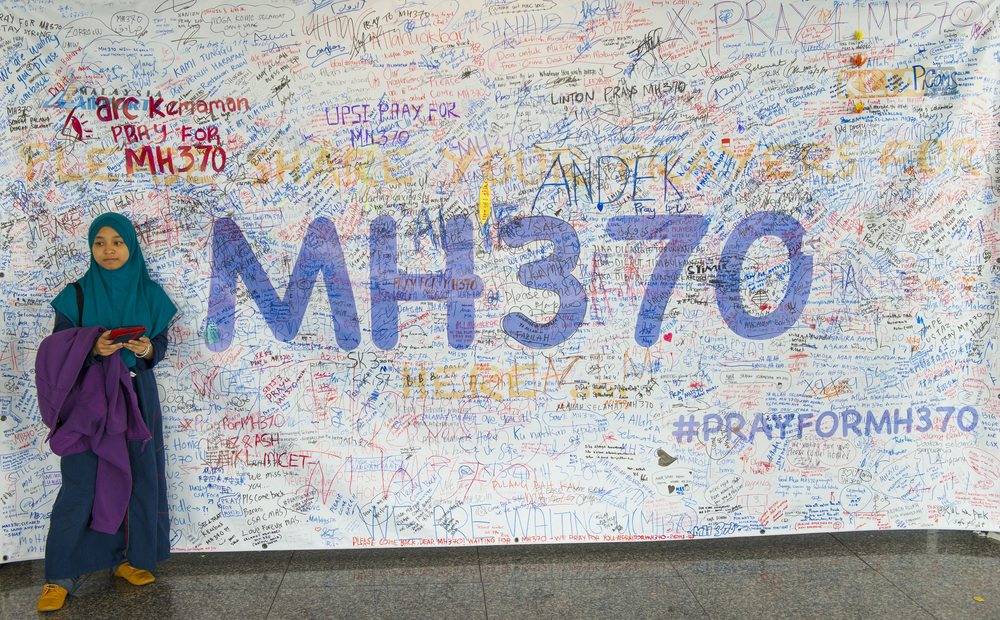
PERTH, Australia — As the search continued off the coast of Australia for the missing Malaysia Airlines jet, the airline announced another plane bound for India was forced to make an emergency landing early Monday after one of its tires burst on takeoff.
All 159 passengers and seven crew members arrived safely back in Kuala Lumpur, Malaysia, about 2 a.m., about four hours after the plane took off for Bangalore, India. The incident was more drama for an airline already under immense pressure for answers from the public and the families of those missing from Flight 370, more than six weeks after it departed the same airport.
Deputy Foreign Affairs Minister Hamzah Zainuddin met with the passengers’ relatives in Kuala Lumpur on Sunday to talk about where to go next. Financial assistance was discussed and family members were urged to submit a plan for consideration. He declined to elaborate further, but said a fund could possibly be set up by the government or Malaysia Airlines.
The relatives, however, expressed dissatisfaction with the meeting, saying in a statement that until they have “at least a tiny bit of concrete evidence” that the plane crashed, authorities should not try to settle the case with final payoffs.
“No meaningful report on the progress of the investigation was given” at the meeting, the relatives said, adding that “not a single one” of their questions was answered.
“We realize this is an excruciating time for the families of those on board,” said Zainuddin, who heads a committee overseeing the needs of the next of kin. “No words can describe the pain they must be going through. We understand the desperate need for information on behalf of the families and those watching around the world.”
He added that he would soon visit Beijing to shore up bilateral relations between Malaysia and China. Two-thirds of the missing plane’s 227 passengers were Chinese, and many of their family members have been angered by Malaysia’s handling of the investigation, with some accusing the government of lying, incompetence or participating in an outright cover-up.
After nearly a week of sweeping the bottom of the ocean with sonar, a robotic submarine continued its search on Monday. The yellow device has already covered about two-thirds of its focused search area, but has yet to uncover any clues that could shed light on the plane’s mysterious disappearance.
The U.S. Navy’s Bluefin 21 has made eight trips below the surface to scan the silt-covered seabed far off the coast of western Australia, journeying beyond its recommended depth of 4 1/2 kilometers (2.8 miles). Its search area forms a 10-kilometer (6-mile) radius around the location of an underwater signal that was believed to have come from the aircraft’s black boxes. The search coordination center said the sonar scan of the seafloor in that area was expected to be completed sometime this week.
Malaysian Defense Minister Hishammuddin Hussein has stressed the importance of the weekend’s submarine missions, but added that even if no debris was recovered, the scope of the search may be broadened or other assets may be used.
Meanwhile, up to 10 military aircraft and 11 ships were planning to brave rainy, windy weather on Monday as crews hunted for debris floating on the ocean surface in a 49,500 square kilometer (19,000 square mile) search zone, about 1,700 kilometers (1,000 miles) northwest of Perth, the search coordination center said.
Radar and satellite data show the jet mysteriously veered far off course for unknown reasons and would have run out of fuel in the remote section of ocean where the search has been focused. Not one piece of debris has been recovered since the massive multinational hunt began.
There have been numerous leads, but all have turned out to be false. The most promising development came when four underwater signals were detected April 5 and 8. The sounds were consistent with pings that would have been emanating from the plane’s flight data and cockpit recorders’ beacons before their batteries died.
The search coordination center has said the hunt for floating debris on the surface will continue for at least the next few days, even though the Australian head of the search effort, Angus Houston, had earlier said it was expected to end sooner.
Associated Press writer Kristen Gelineau in Sydney contributed to this report.